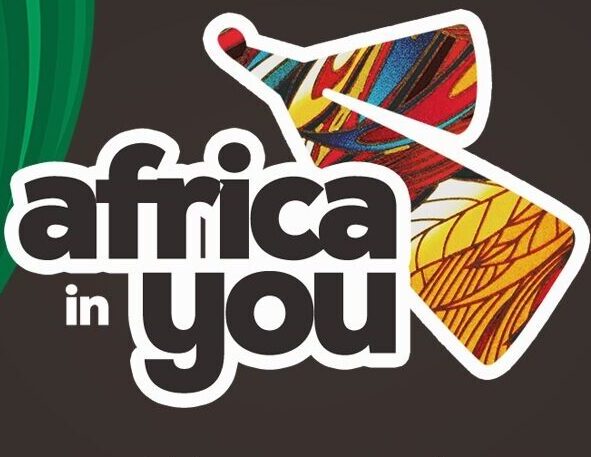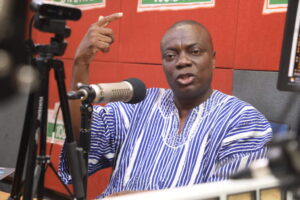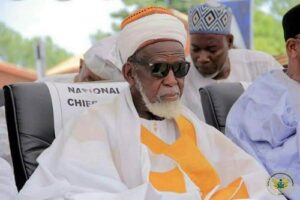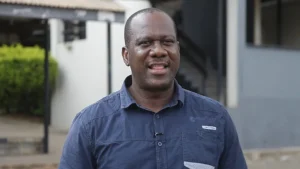
A reader at a newspaper stand sampling the various newspapers
A distinguishing feature of democracy, compared to other forms of government, is the guaranteed freedoms citizens can enjoy.
Chapter Five of Ghana’s Constitution, titled Fundamental Human Rights and Freedoms, comprehensively lists all the freedoms Ghanaians enjoy and the protections that come with them.
The state is expected not only to respect these freedoms but also to protect them.
Most important of all, the state must not use its coercive powers to violate these freedoms.
However, those who wrote the Constitution also understood the flawed nature of human beings and proceeded to make provisions for the grounds upon which the state may curtail or interfere with these freedoms.
It also made provisions for the grounds upon which any injury caused by exercising the guaranteed freedoms can be dealt with.
Freedom of speech
Let’s focus on freedom of speech. Article 21(1)(a) of Ghana’s Constitution states that “All persons shall have the right to freedom of speech and expression, which shall include freedom of the press and other media.” There are no ambiguities here.
The framers of the Constitution wanted Ghanaians, including the media, to be free to express their thoughts and opinions on all matters.
However, the same Constitution made provisions for “limitation on rights and freedoms” in Article 164 under certain circumstances, such as “national security, public order, public morality and protecting the reputations, rights and freedoms of other persons.”
So, on the one hand, as a citizen, I am generally allowed to speak my mind freely.
On the other hand, in doing so, I must remember not to say things that threaten national security, harm the reputation of others, etc.
There is an expectation that, as a citizen, one’s right to free speech will be exercised responsibly.
The dilemma is determining when a citizen has been irresponsible in exercising their free speech rights.
What is the threshold? In addition, when a citizen is deemed to have done so, how does the state impose an appropriate and fair sanction on such persons without producing a chilling effect on others?
Misinformation and disinformation
There is a particular paradox about our current political environment.
On the one hand, technology has democratised access to and the dissemination of information.
On the other hand, it has also ushered in a period of misinformation and disinformation, especially during elections.
Whether it is outright untruths that are expressed with so much certainty or the distortion of policy ideas and positions of politicians, the rhetoric makes one cringe.
Misinformation and disinformation do not target only public officials.
The purveyors also target their fellow citizens, especially those with whom they either have political differences or feel have made statements inimical to their partisan interest.
In my opinion, the consequences of misinformation and disinformation are not fully appreciated by the purveyors.
Sure, as a political tool, it may achieve some narrow partisan goals.
However, does it ever occur to the purveyors what it does to our democratic politics beyond achieving narrow partisan goals? I do not think so.
Partisans often argue that those aggrieved by misinformation and disinformation can sue for defamation. But is it that simple?
It is sometimes also argued that we must leave it up to citizens to decide whether what they hear on the radio and television or read on social media is true or not. That may be true.
Here is an important disclaimer. Misinformation and disinformation are not a uniquely Ghanaian political problem.
I am sure those who follow politics globally also recognise how much it features in other jurisdictions.
Where do we go from here then?
Having once been the victim of vicious misinformation by some partisans who felt my public commentary on a national issue offended their political sensibilities, it is easy for me to call for the state to help fight this malice.
I, however, recognise the risks.
First, there is the appearance that this suggests advocating the curtailment of constitutionally protected rights.
Second, and more importantly, I am unsure whether the state would be measured in using its coercive powers to deal with this, especially if the offending conduct is deemed to have targeted the state and its officials.
Perhaps, that is the price we must pay for choosing to live in a democracy.
As Justice Roberts, Chief Justice of the US Supreme Court, said in a free speech case, “the Constitution protects even hurtful speech.”
When I think of the statement and its application to other jurisdictions such as Ghana, it tells me that in dealing with speech, the state believes that offends the Constitution and laws of the land, protection of the free speech right must still be the preference over harsh sanctions.
The writer is Project Director, Democracy Project






